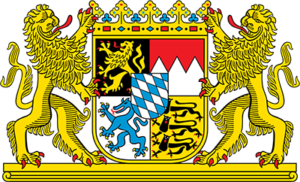16th Biotech Press-Lounge at the IZB: A new “atlas for human heart cells” may lead to customized and personalized therapies in the future
March 16, 2023
Dr. Naegler of Wellington Partners, Dr. Reichart from Genetics at Harvard Medical School and Heimo Adamski from 4GENE presented the drug therapies of the future and took a look at future key technologies

16th Biotech PressLoung – Heimo Adamski, Dr. Karl Nägler, Anouschka Horn, Dr. Daniel Reichart and Dr. Peter Hanns-Zobel (l. to r.)
Martinsried near Munich, March 16, 2023 – The Biotech Press Lounge of the Innovation and Start-up Center for Biotechnology (IZB) has established itself as a popular network meeting for multipliers from the biotech, pharmaceutical and venture capital industries as well as journalists: On March 16, 2023, around 70 guests met in the IZB Faculty Club G2B (Gateway to Biotech) for three keynote speeches and subsequent exchanges. Dr. Karl Nägler from Munich’s VC Wellington Partners presented hypotheses about drug therapies of the future. Dr. Daniel Reichart from Harvard Medical School presented an atlas for human heart cells, based on which personalized therapies for heart diseases can be developed in the future. The IZB start-up 4Gene reported on its platform technology for producing refined molecules that could change the world. The event was moderated by Anouschka Horn from Bavarian Television (Bayerisches Fernsehen).
Dr. Peter Hanns Zobel, Managing Director of the IZB, opened the event with a welcome speech: “I am delighted that so many industry representatives have accepted our invitation to the Biotech Press Lounge. The life sciences industry is highly innovative, and it is always fascinating to exchange views on scientific progress and current and future trends in biotechnology.”
In the first talk of the event, Dr. Karl Nägler, Managing Partner at Wellington Partners, took a look into the future of drug therapy, circa 2043. Based on the observation that technological revolutions can often be anticipated when looking at present trends and needs, Nägler put forward various hypotheses. To be able to cure diseases, therapeutic modalities will become increasingly complex, intelligent and customizable in the future. Digitization will make drug discovery and development more rational and therefore more efficient, so that larger numbers of new drugs can reach the market faster and at lower costs. Prevention is also gaining increasing importance and could not only lead to early diagnosis in the future, but also to preventive interventions. “Based on these assumptions, I consider gene therapies, especially gene editing, to be a key technology of the future. This requires technologies that are even safer than today, where the results can be entirely predicted. Some of such technologies are already in early development, also supported by Wellington Partners, and will lead to a paradigm shift in drug therapy.”
Related to this, in his talk Dr. Daniel Reichart, postdoctoral fellow at the Genetics Department at Harvard Medical School and consultant at XTransplant, presented new diagnostic and therapeutic approaches in cardiovascular medicine. A human heart beats around 100,000 times a day, it can adapt to increased intensities – such as during sport – and then return to a resting state. This requires perfect choreography between various, very specific heart muscle cells which work and communicate in a coordinated manner. The “Human Heart Cell Atlas” project, using single-cell and single-nucleus RNA sequencing now reveals the – previously unknown – cellular and molecular diversity of the human heart. The high sensitivity achieved in this way enables precise characterization of the gene activity of each individual heart cell type and its subtypes – which in turn helps us understand how lifelong cardiac performance is achieved and how this interaction differs during disease. “Ultimately, this fundamental knowledge can lead to tailored therapies in the future and thus create personalized medicine for heart diseases that can improve the efficacy of treatment for every patient,” said Reichart.
Heimo Adamski, Managing Partner of 4GENE GmbH, spoke about a new platform technology for “Improved Molecules”. The water solubility of active pharmaceutical ingredients often represents a major hurdle for drug dosage formulations. They are therefore offered as tablets, which are a problem, especially when taken by patients with swallowing disorders (dysphagia). The technology platform developed by 4GENE for the glycosylation of small molecules can remedy this and improve the water solubility of active ingredients by up to 5,000-fold. This enables alternative drug dosage formulations and improves patient well-being. In addition to the use of glycosylation in the pharmaceutical field, the technology is also suitable for use in fragrances and aromas in cosmetics, foods and even in industrial applications. “In the end, as always, what counts for the customer is the price and we are proud not only to demonstrate the technical feasibility, but also to achieve economical production of the glycosides for our customers,” said Adamski, and explained the use of the technology in different market segments using many practical examples.
Photographic material from the event can be downloaded from our website: https://www.izb-online.de/mediathek/bildergalerien/
About the Innovation and Start-up Center for Biotechnology (IZB) in Martinsried near Munich
The Fördergesellschaft IZB mbH, founded in 1995, operates the Innovation and Start-up Centers for Biotechnology in Planegg-Martinsried and Freising-Weihenstephan and has developed into a leading biotechnology center. More than 50 biotech companies with over 700 employees are currently based on 26,000 m2. Here, work is being done on developing drugs for the most serious diseases, such as cancer, Alzheimer’s and various autoimmune diseases. A key criterion for the success of the IZBs is the physical proximity to cutting-edge research on the Martinsried/Grosshadern campus and the Weihenstephan campus. The new infrastructure measures such as the Faculty Club G2B (Gateway to Biotech), the IZB Residence CAMPUS AT HOME, the Elhardt chemistry college, the two kindergartens Bio Kids and Bio Kids2 as well as the two restaurants SEVEN AND MORE and THE BOWL Food Lounge are also location factors that are highly valued by the founders of the company. Successful companies that emerged from the IZB include Corimmun (today Janssen-Cilag), Coriolis, Exosome Diagnostics (today Bio-Techn), ibidi, Immunic Therapeutics, Medigene, Micromet (today Amgen), MorphoSys, Octopharma, Rigontec (now MSD) or rSIRION Biotech (today Kliener Perkins. More information at www.izb-online.de
Press contact and image material requests:
Susanne Simon, Head of Press and Public Relations
Funding company IZB mbH, Innovation and Start-up Center for Biotechnology
Am Klopferspitz 19, D-82152 Planegg-Martinsried,
Phone: +49 (0)89/55 279 48-17, E-Mail: ed.enilno-bzi@nomis;
Website: www.izb-online.de



